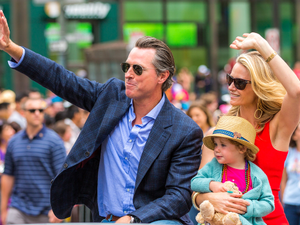San Francisco's Political Divide: How Money and Ideology Are Reshaping Asian American Activism
In the heart of San Francisco’s political landscape, a complex narrative is unfolding that challenges traditional power dynamics and exposes deep rifts within the Asian American community. The recent recall effort against Supervisor Joel Engardio has become a microcosm of broader tensions between grassroots organizers and wealthy donors.
Activists like Selena Chu, who once supported Engardio, now find themselves alienated from political coalitions they helped build. The core of their frustration lies in feeling used as “soldiers” who do the groundwork without having a seat at the decision-making table. Proposition K, which closed a portion of the Great Highway to cars, became a pivotal moment that fractured these political relationships.
The recall campaign has illuminated a generational and ideological divide. While some Asian American leaders have been instrumental in past successful recalls, including the removal of school board members and District Attorney Chesa Boudin, they now feel disconnected from the mainstream moderate groups and billionaire donors who previously supported them.
Political consultant David Ho suggests that community leaders need to be more strategic about which causes will attract wealthy backers. Josephine Zhao from the Chinese American Democratic Club bluntly states that these powerful groups have “thrown them under the bus” by focusing on issues like beachfront redevelopment and dense housing that many Asian American constituents oppose.
The disconnect isn’t just about policy, it’s about representation and understanding. Albert Chow, a local hardware store owner, points out the stark contrast between young, affluent donors and multigenerational Asian American families who rely on cars for daily necessities. These donors, he argues, are “long on money and short on history”.
Veteran activists like Henry Der warn the community to be cautious about aligning with wealthy donors who might exploit their concerns for personal political gain. The message is clear: financial backing doesn’t always translate to genuine representation.
As the recall effort moves forward, it represents more than just a potential leadership change, it’s a referendum on political power, community values, and who truly gets a voice in San Francisco’s evolving political landscape.
AUTHOR: rjv
SOURCE: San Francisco Public Press
























































